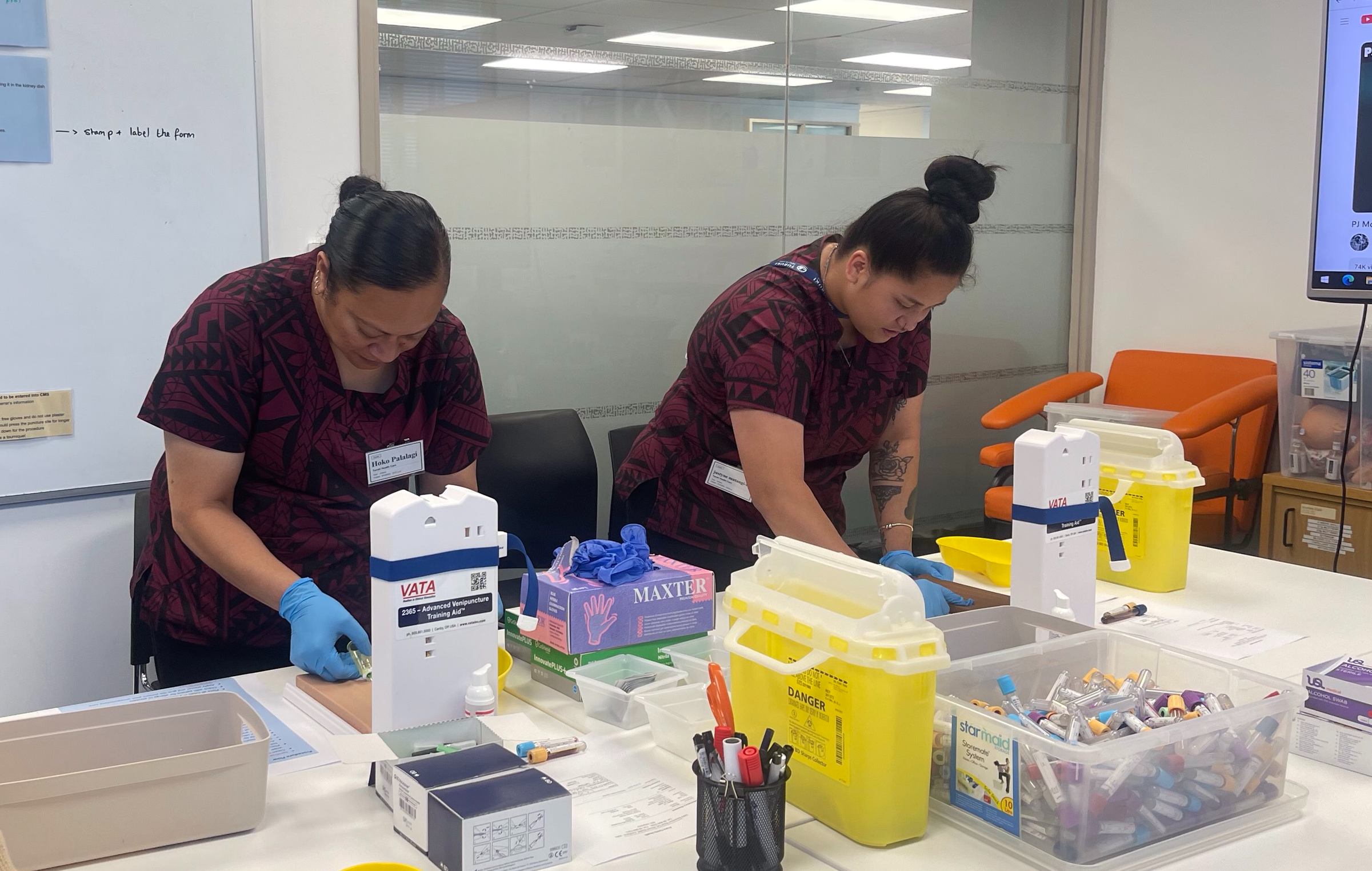A new initiative between Awanui Labs Auckland and Turuki Health Care, an Auckland-based Kaupapa Māori health service, is underway to support local communities with better access to blood testing.
“The collaboration started as a way to reduce the access issue for patients visiting Turuki who are predominantly Māori and Pasifika, by ensuring venepuncture skill sets are onsite rather than elsewhere like our collection centres” says Quality and Compliance Co-ordinator Victoria Salanoa.
“Turuki Health Care also provide wraparound services for their patients and their whānau such as connecting people to community and social services, a pharmacy and supporting hapū. So, what began as a way for Awanui Labs to help to get more people getting a blood test, has widened to support local people to improve their health and wellbeing.”
Phlebotomy Trainer Ailish Treacy, with support from Victoria, has spearheaded training nurses and healthcare staff at Turuki to collect blood from their patients since the initiative started towards the end of last year.
“The role for Ailish and myself is to provide training to the nursing and healthcare staff at Turuki on how to collect blood. Some of their staff have venepuncture experience, others don’t, and we are giving them both theoretical and practical training.”
“There are only two Turuki staff members at each session. By keeping the group to two people, we can really provide dedicated and hands-on training and support, whereas other External Training groups we have can range from 4 to 15 people in one session” says Victoria.
Ailish and Victoria hold two training sessions each week, with theory being taught at our Awanui Labs Auckland laboratory in Mount Wellington, and the practical training at one of our collection centres.
“We want to provide quality training to the staff at Turuki, so they can get the most out of the learning, and their time spent with us. We also created an online course that covers all important theory aspects of venepuncture, from how to get a good specimen, to making sure the right details are recorded on the patient form. This is a very important part of phlebotomy and something which can often be overlooked.”
Victoria says the programme is delivering real benefits to people and whānau in their communities.
“People visiting Turuki can have their blood taken by staff at the clinic so they don’t have to leave to go elsewhere. This reduces the need for them to travel, take time off work, and is less costly to them.
“Overall, the initiative means people can get their blood taken by someone they know, trust and who shares their cultural values. It is great to be part of the collaboration with Turuki and shows what we are achieving to improve access to testing by working with local, front-line community organisations,” says Victoria.
